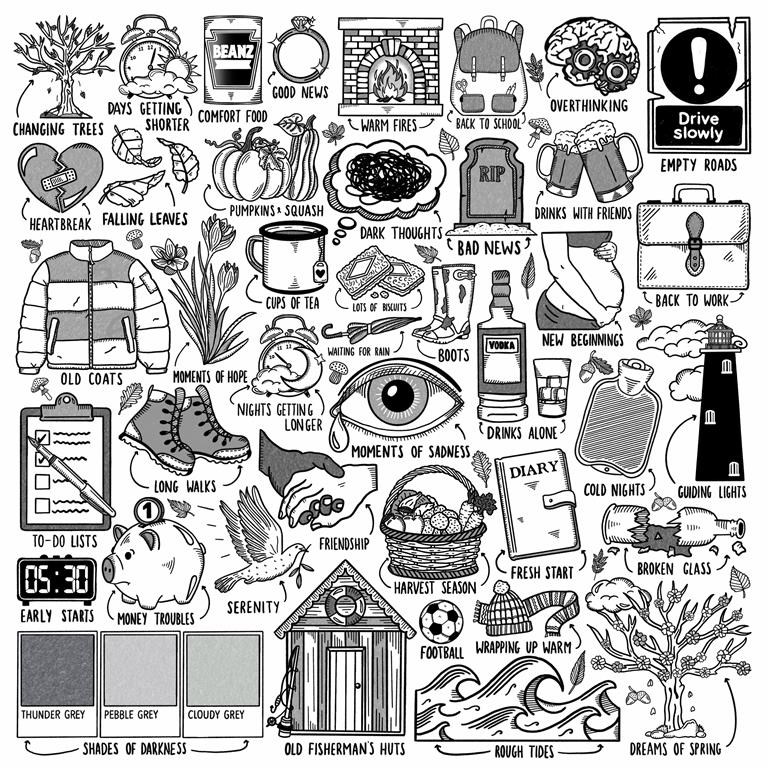Review: Ed Sheeran’s ‘Autumn Variations’ is a beautifully honest exploration of adult despondency
Advertisement
Read this article for free:
or
Already have an account? Log in here »
We need your support!
Local journalism needs your support!
As we navigate through unprecedented times, our journalists are working harder than ever to bring you the latest local updates to keep you safe and informed.
Now, more than ever, we need your support.
Starting at $15.99 plus taxes every four weeks you can access your Brandon Sun online and full access to all content as it appears on our website.
Subscribe Nowor call circulation directly at (204) 727-0527.
Your pledge helps to ensure we provide the news that matters most to your community!
To continue reading, please subscribe:
Add Brandon Sun access to your Free Press subscription for only an additional
$1 for the first 4 weeks*
*Your next subscription payment will increase by $1.00 and you will be charged $20.00 plus GST for four weeks. After four weeks, your payment will increase to $24.00 plus GST every four weeks.
Read unlimited articles for free today:
or
Already have an account? Log in here »
Hey there, time traveller!
This article was published 28/09/2023 (766 days ago), so information in it may no longer be current.
LOS ANGELES (AP) — “I’ve been up all night, thinking about dying,” Ed Sheeran opens “When Will I Be Alright”, one of his new album’s final tracks. “I’ve just been wasting time,” he continues. “God is not on my side.”
Somehow, that’s not even the most devastating moment.
That arrives later in the track, when mournful strings carry the song to its coda like a country dirge. Sheeran has never been one to shy away from explicit emotionality, but something’s different on “Autumn Variations,” his sixth studio album and the first since his series of releases named after mathematical symbols. (The first was his 2011 debut, “+.” His last, released in May of this year, was titled “−“, or “Subtract.” ) Is this the end of an era, or the beginning of something novel?

Inspiration came from an unusual place: composer Edward Elgar’s “Enigma Variations,” in which every composition was about a different friend. Sheeran’s “Autumn Variations,” instead, centers on his relationships.
“Last autumn, I found that my friends and I were going through so many life changes. After the heat of the summer, everything either calmed, settled, fell apart, came to a head, or imploded,” he said in a statement. “When I went through a difficult time at the start of last year, writing songs helped me understand my feelings and come to terms with what was going on.”
Chalk it up to fatherhood, marriage, or simply residual effects of a global health crisis that has altered the psychology of humanity in increasingly complex and unearthed ways, but it makes for some of the best songs of Sheeran’s career, from the lo-fi “Midnights”, the lamenting reverbed riff of “Punchline,” to the Billy Joel -channeling “The Day I Was Born.”
“Autumn Variations” was produced solely by The National’s Aaron Dessner (Taylor Swift, Gracie Abrams), who Sheeran worked with on “-.”
And sure, perhaps that can account for some of the big existential queries here, met with production of a similar depth. Dessner’s National-isms appear in surprising corners, like in the closing minute of “Amazing,” an otherwise uptempo track about the challenges of mood regulation.
Sheeran and Dessner have proven to be a marvelous partnership. In the past, Sheeran has spent time demonstrating a masterful understanding of taking pop architecture and marrying it with EDM, reggaeton, Afropop, however you’d describe the sonic idiosyncrasies of Jai Paul. But here, with Dessner, he’s returned home to his folk-y pop craft, the world he knows best. And with obvious evolution. And a bit of depression.
If there is a cultural schmaltz associated with Sheeran’s biggest radio hits, they do not apply here. (Well, with few exceptions – like the “Friends” reference in “American Town.”) Surely that’s enough reason to dig in.
